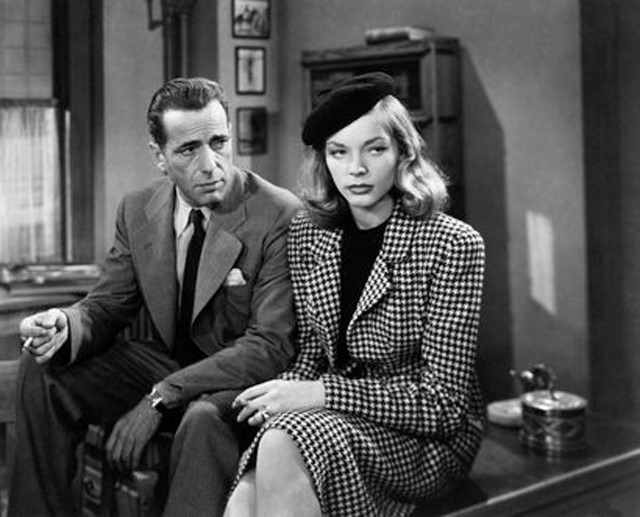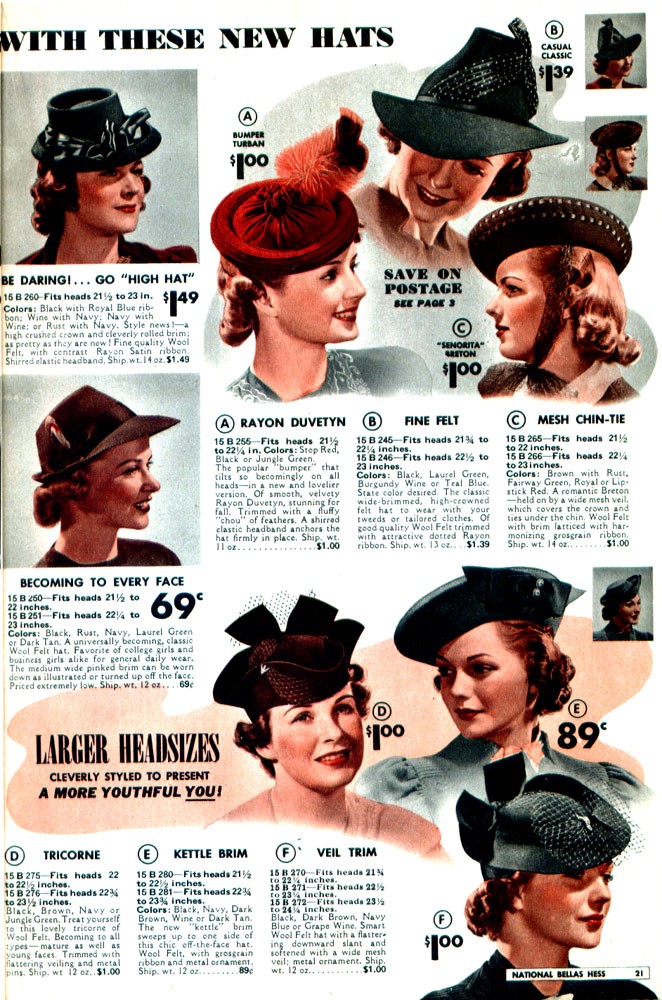If you’re feeling at a loss for how to get your costume on after Halloween, vintage costumes are an excellent choice. They’re not easily classified as either a costume or an outfit—they’re kind of both, really. And depending on how dramatic your friends tend to be, you may not feel like you’re dressing up at all! They’re perfect for holiday parties.
Many of us remember watching movies like “The Sound of Music” and “It’s a Wonderful Life,” growing up. Why did the women look so well put-together in those films? Well, it’s probably because they were set in the nineteen thirties and forties—back when tailoring was put front and center. Every piece—whether a skirt, a blouse, or a jacket—was exquisitely fitted, hemmed, and just…elegant, it seemed.
One popular style, as seen above on Donna Reed’s character Mary Hatch from “It’s a Wonderful Life,” is the tailored dress with a straight skirt and Peter Pan or embroidered/lacey white collar. It’s a dress that’s easy to find both patterns and reproductions of, online, since it was such a popular style.
Another popular style was the dress suit, made up of a tailored, fitted wool jacket and a skim pencil skirt that fell just below the knee or at the knee:
Part of the reason for this was the fact that, first during the Great Depression, then during World War II, money was scarce and clothing was eventually being rationed, which led to creative problem solving in sewing. For example, department stores sold patterns for transforming men’s suits into women’s clothing.
And don’t forget the hat! It seems that hats in the thirties and forties were always worn at an angle—with hats in the thirties being a bit smaller than hats in the forties, which more closely resembled a man’s fedora than the smaller velvet and feathered caps of the twenties and thirties, which seemed to be intended more for decoration than function.
Although we no longer need to deal with rationing, you could probably guess that a faithful reproduction of these vintage looks could get a bit pricey, unless you’re creative. So—how can you put together a convincing 1930s or 1940s outfit without breaking the bank?
The first possibility is to make it yourself! There are numerous sites out there that provide vintage sewing patterns, starting from the early 1900s and going through the nineteen-thirties and forties to the end of the 20th century. However, if you’re not as handy with a needle and thread, there are plenty of sources for vintage reproduction clothing: Puttin’ on the Ritz and Vintage Dancer are two good sources for new imitations of classic women’s styles.
Finally, it of course is always a possibility to go out and find the real thing—provided, of course, that you’re willing to be patient! You may have to shell out a pretty penny, however—as they used to say—but it’ll likely be worth it, if only to channel the life and personality of the former owner! Eek!
Seriously speaking, vintage clothes hunting can become a time-consuming pastime, but you can obtain genuine pieces either online or locally, at vintage and antique stores. Most online sources of vintage clothing are either private sellers or tied to a particular store from which items are shipped. However, if you’re going to invest in the genuine article, so to speak, it’s worth the time to try the clothes on—which is why I recommend either finding an outfit in person or making sure the pieces you obtain online fit your measurements exactly.
Best of luck channeling your inner Lauren Bacall for those holiday parties! Now go forth and put on the ritz!















[…] By Emma Rae Curtis […]